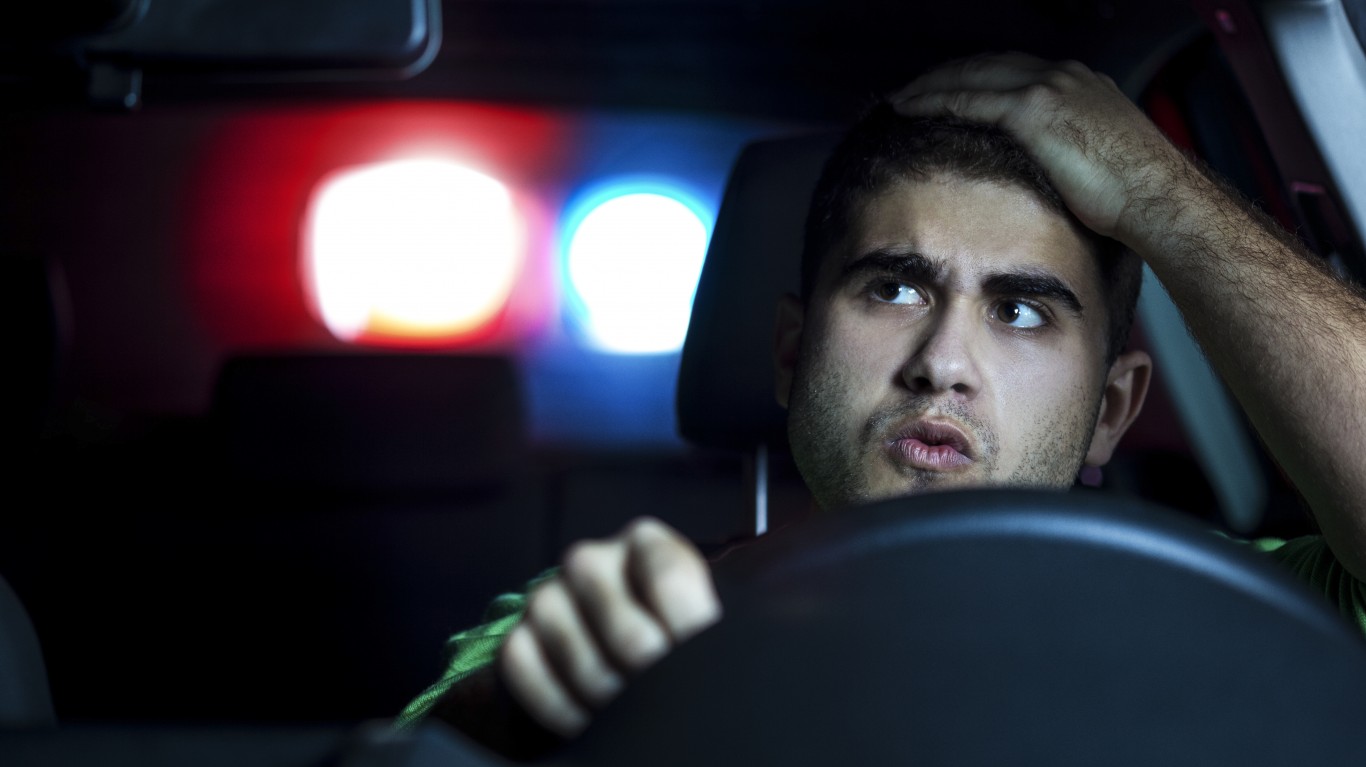Economy
Be Careful Driving Here: These Are States Where You Are Most Likely to Get a Speeding Ticket

Published:
Last Updated:

New research shows there is a very large spread of how likely people are to get a speeding ticket by state. The data collected included state, total speeding tickets per year and tickets issued per 10,000 from for a single year.
The states with the largest populations were also those that have the highest total ticket counts per year. California was first with a total of 1,053,925. New York was second with 712,370, followed by Florida at 704,092. At the other end of the spectrum, states with low populations had smaller raw ticket counts. North Dakota had only 4,512, Vermont had 10,993, followed by West Virginia at 12,916. Each of these states has a “worst city to drive in.”
The researchers commented that raw ticket count is not a good means to show the likelihood of getting a ticket in a given state. A much more accurate measure is the number of tickets issued per 10,000. They said: “With that in mind, we took the number of tickets every state has issued and the most recent population count from the US Census to find out how many tickets each state issues per 10,000 people that live in the state. This allowed us to get a truer idea of which states are the most and least likely to issue speeding tickets to drivers.”
By the measurement per 10,000 drivers, a tiny state based on size rose to the top of the list of the 10 states where people are most likely to get a speeding ticket. Tickets per 10,000 people in Wyoming were measured at 903.45. This was followed by South Carolina at 824.95, Oregon at 665.76, Georgia at 638.32, Washington at 610.64, Mississippi at 599.29, Arizona at 566.56, North Carolina at 534.31, South Dakota at 519.54 and Utah at 504.57. The researchers reported: “At the top of the list is Wyoming, where one out of a little more than 11 people in the state can expect to receive a speeding ticket.”
The states where people are least likely to get a speeding ticket are West Virginia at 64.3, Michigan at 69.95, North Dakota at 71.60, Illinois at 95.12, Alabama at 105.19, Vermont at 119.74, Pennsylvania at 124.07, Colorado at 132.39, Montana at 146.12 and Oklahoma at 153.85. Some of these are among the states with the most dangerous roads.
Most states have a speed limit of 65 to 70 miles per hour on freeways. In Idaho, Montana, Nevada, South Dakota, and Utah and Wyoming, that rises to 80 mph. And in Texas, on some roads, it is as high as 85 mph. State Highway 130, which runs for 40 miles between Austin and San Antonio, has been dubbed the “nation’s fastest highway” because it has an 85 mph speeding limit across its entire length.
The researchers at Yonker Honda spelled out their methodology: “All told, we were able to get at least one year of speeding ticket data from between 2011-2017 for 48 of the 50 states (Arkansas and Louisiana proved too elusive), and for most of them, we were able to find and compare that data across multiple years in our time frame.” Aside from speeding cameras, you have to watch out for bad drivers, too. These are the cities with the most aggressive drivers in America.
| State | Tickets (Most Recent Year) | Per 10K Citizens |
|---|---|---|
| Wyoming | 42,047 (2017) | 903.45 |
| South Carolina | 388,631 (2015) | 824.95 |
| Oregon | 322,871 (2015) | 665.76 |
| Georgia | 601,905 (2017) | 638.32 |
| Washington | 416,699 (2015) | 610.64 |
| Mississippi | 171,070 (2013) | 599.29 |
| Arizona | 264,474 (2016) | 566.56 |
| North Carolina | 528,062 (2017) | 534.31 |
| South Dakota | 49,598 (2016) | 519.54 |
| Utah | 140,146 (2017) | 504.57 |
Note: Tickets per 10,000 citizens figures are averages for all years in which data was available. Source: Yonkers Honda
Start by taking a quick retirement quiz from SmartAsset that will match you with up to 3 financial advisors that serve your area and beyond in 5 minutes, or less.
Each advisor has been vetted by SmartAsset and is held to a fiduciary standard to act in your best interests.
Here’s how it works:
1. Answer SmartAsset advisor match quiz
2. Review your pre-screened matches at your leisure. Check out the advisors’ profiles.
3. Speak with advisors at no cost to you. Have an introductory call on the phone or introduction in person and choose whom to work with in the future
Get started right here.
Thank you for reading! Have some feedback for us?
Contact the 24/7 Wall St. editorial team.